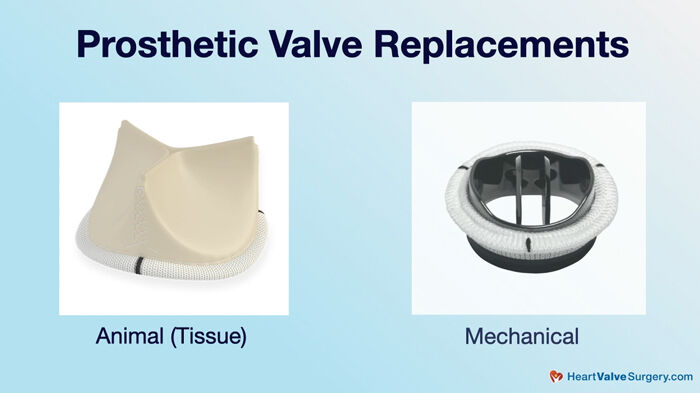Bicuspid Aortic Valve Disease & Medications: Top 7 Facts with Dr. Luis Castro
Written By: Adam Pick, Patient Advocate & Author
Medical Expert: Luis Castro, MD, MarinHealth, Larkspur, California
Page last updated: June 9, 2025
Patients diagnosed with bicuspid aortic valve disease are often confused about the potential use of medication and/or cardiac surgery to treat this unique form of heart disease. For example, Tina just emailed me, “Hi Adam – Is there any medicine for the treatment of a leaking bicuspid aortic valve?”
To answer Tina’s question, I just met with Dr. Luis Castro, a leading heart valve surgeon at MarinHealth Heart and Vascular Institute in Marin County, California. During his extraordinary career, Dr. Castro has performed over 8,000 cardiac procedures and more than 5,000 heart valve repair and replacement operations. At HeartValveSurgery.com, Dr. Castro has successfully treated over 200 patients in our community including Shelly Gould and James Hoffman.
Key Insights About Medicine & Bicuspid Aortic Valves
Here are important insights from Dr. Castro about medications and bicuspid aortic valves:
- Bicuspid aortic valve disease is the most common congenital abnormality impacting 1% to 2% of the population.
- According to Dr. Castro, the majority of patients with bicuspid aortic valves will not need heart surgery during their lifetimes. Operations are typically required for patients who have advanced, or severe, forms of this valvular defect. Aortic valve disease may be categorized as trace, mild, moderate and severe.
- There are two types of disease associated with bicuspid aortic valves including (i) aortic stenosis which is a narrow valve and (ii) aortic regurgitation which is a leaking valve. Both stenosis and regurgitation force the heart to work “overtime” to pump blood through the heart. This ongoing strain on the heart can lead to an enlarged heart (cardiomyopathy), heart failure and death.
- For patients with mild forms of bicuspid aortic valves, medications can be used to help manage the aortic regurgitation. “Medication can be used, and very successfully, with mild cases of regurgitation,” states Dr. Castro. “What we try to do with medication is to lower blood pressure on the end where blood is trying to be expelled in, so that more blood ends up forward and less blood ends up coming back and returning to the heart. We can also – like a leaky faucet, if you will. If you’ve got a leaky valve and a leaky faucet, you turn down the water supply so that it leaks less. We can use diuretics which are medications that enhances urination and decrease the total volume of blood within the heart chamber so your valve is going to leak less.”
- If the severity of the aortic regurgitation increases, patients may need aortic valve repair and/or aortic valve replacement surgery.
- Aortic valve surgery is very effective and safe, according to Dr. Castro. “If you are ever faced with your aortic valve requiring an operation because it’s just too leaky, the good news is that we live in a day and age where we perform these operations very safely. There’s lots of choices. There’s tissue heart valves. There’s mechanical heart valves. The surgical choices that you have are extremely safe.”

Many Thanks to Dr. Castro!
On behalf of our patient community, many thanks to Dr. Luis Castro for sharing his clinical experiences and research specific to bicuspid aortic valve and medications. We also want to thank his entire team for taking such great care of our patients with heart valve disease.
Keep on tickin!
Adam
P.S. For the deaf and hard of hearing members of our community, I have provided a written transcript of my interview with Dr. Castro below.
Video Transcript:
Adam Pick: Hi, everybody. It’s Adam at heartvalvesurgery.com, and today we’re answering patient questions all about the treatment of leaking bicuspid aortic valves with medications. I am thrilled to be joined by Dr. Luis Castro, who’s a leading cardiac surgeon at MarinHealth Heart and Vascular Institute. During his extraordinary career, Dr. Castro has performed over 8,000 cardiac procedures with more than 5,000 involving some form of heart valve repair or heart valve replacement. Dr. Castro, it is great to see you again. Thanks for being with us today.
Dr. Luis Castro: Thank you very much, Adam. It’s always a pleasure for me to be on heartvalvesurgery.com and help your community.
Adam Pick: Dr. Castro, we’re going to get to Tina’s question in just a second, but first, I want to thank you and your team for doing a great job with our patient community. Last I checked, you have successfully treated over 190 patients from our community. I just want to say thank you for all the great outcomes you’re getting our patients.
Dr. Luis Castro: You’re welcome, Adam. It takes a village. We’re honored to take care of your patients.
Adam: Thank you so much. Now, let’s get to a great patient question from Tina. She asks very simply, Dr. Castro, is there any medicine for the treatment of a leaking bicuspid aortic valve?
Dr. Luis Castro: Great question, Tina. You need to know that bicuspid aortic valves are the most common congenital abnormality of the heart. It’s not uncommon for patients to have bicuspid aortic valves. The majority will never actually need an operation. Operations are done for patients when the time occurs that the valve has become too narrow, then the heart is working actually too hard to expel blood out into the body, or if it leaks back.
The analogy that I like to make with aortic regurgitation or any valve regurgitation is imagining shoveling forward. Every time you shovel, you get everything that you’ve shoveled, or at least half of it, back into your face. You’re going to have to work harder to accomplish the same amount of work. Patients who have leaky valves have hearts that are working overtime. Instead of just pumping four liters a minute of blood, you’re pumping eight, because four go forward, and four come right back into the heart.
Medication can be used, and very successfully, with mild cases of regurgitation. What we try to do with medication is to lower blood pressure on the end where blood is trying to be expelled in, so that more blood ends up forward and less blood ends up coming back and returning to the heart. We can also – like a leaky faucet, if you will. If you’ve got a leaky valve and a leaky faucet, you turn down the water supply so that it leaks less. We can use diuretics, so medication that enhances urination – decrease the total volume of blood within the heart chamber so you’re going to leak less.
It does get to a point where if it is severe enough and the heart begins to enlarge, you have to start considering surgery as a corrective measure so that you can live a long, healthy life without having to worry that you’re going to end up in heart failure or not live long enough to be 80 or 90 years old.
Adam Pick: Dr. Castro, what if Tina ends up to a point where she does need to have an intervention, a surgery? How successful have you and your team been with treating this disease?
Dr. Luis Castro: Tina, if you’re ever faced with your valve requiring an operation because it’s just too leaky, the good news is that we live in a day and age where we perform these operations very safely. There’s lots of choices. There’s tissue heart valves. There’s mechanical heart valves. There’s lots of research underway – hopefully being able to address leaky valves now with transcatheter techniques. We’re still not there just yet. The surgical choices that you have are extremely safe.
Adam Pick: Love that answer, Dr. Castro. Tina, so you know, I am going now on my 16th year after my surgery for my leaking bicuspid valve. I’m hoping that might give you some inspiration knowing, just as Dr. Castro mentioned, there is a very good track record here for success for patients with regurgitant bicuspid aortic valves. Dr. Castro, as always, thanks for taking time away from your very busy practice and being with us today – really, really great seeing you again.
Dr. Luis Castro: It’s always a pleasure, Adam. It’s great to see you, and it’s great to serve your community.
Adam Pick: Hi, everybody. It’s Adam. I hope you enjoyed that video. Don’t forget, you can always subscribe to our YouTube channel, watch the next two educational videos coming up on your screen, or click the blue button to visit heartvalvesurgery.com.
 Dr. Luis Castro
Dr. Luis Castro




